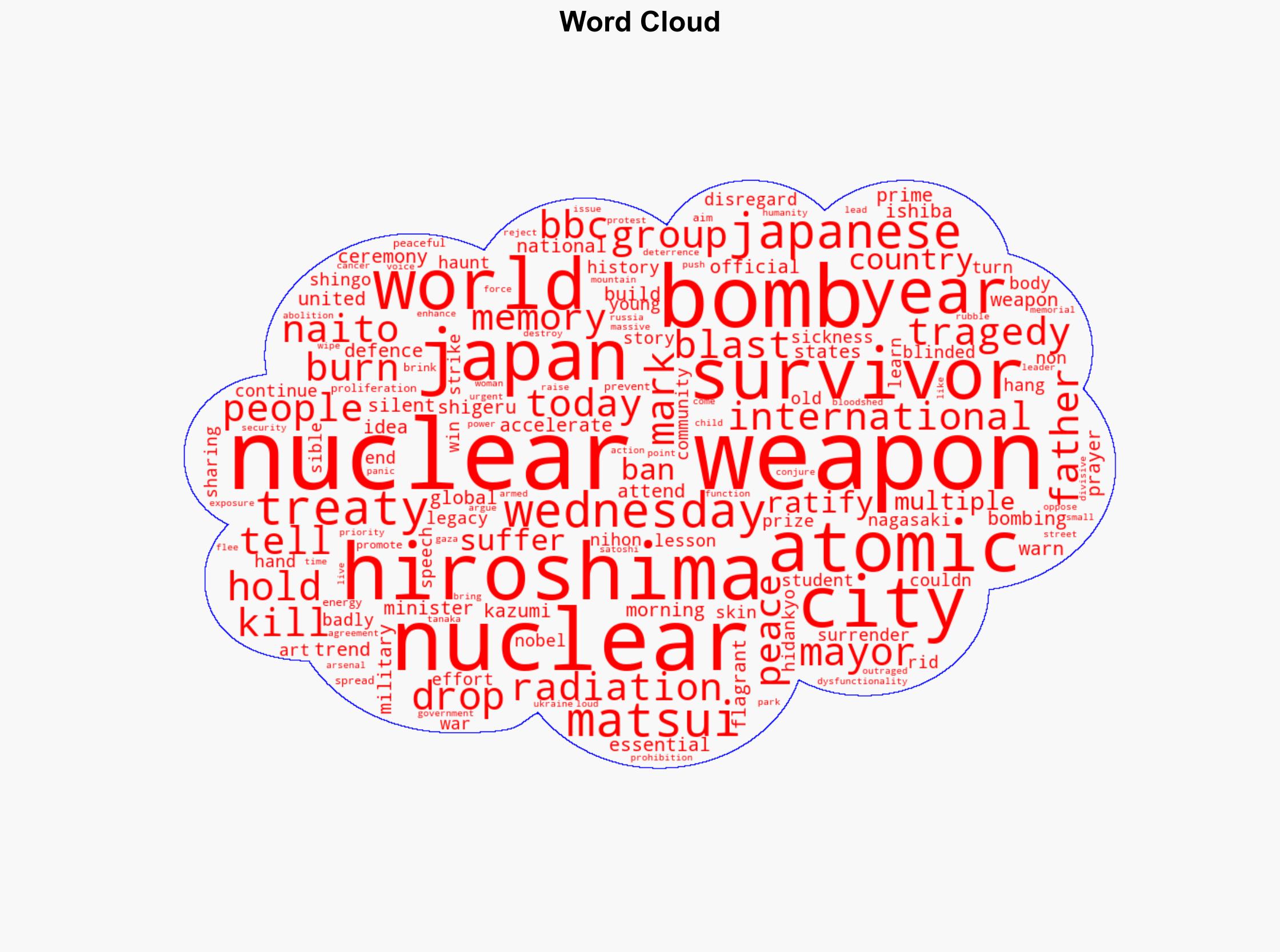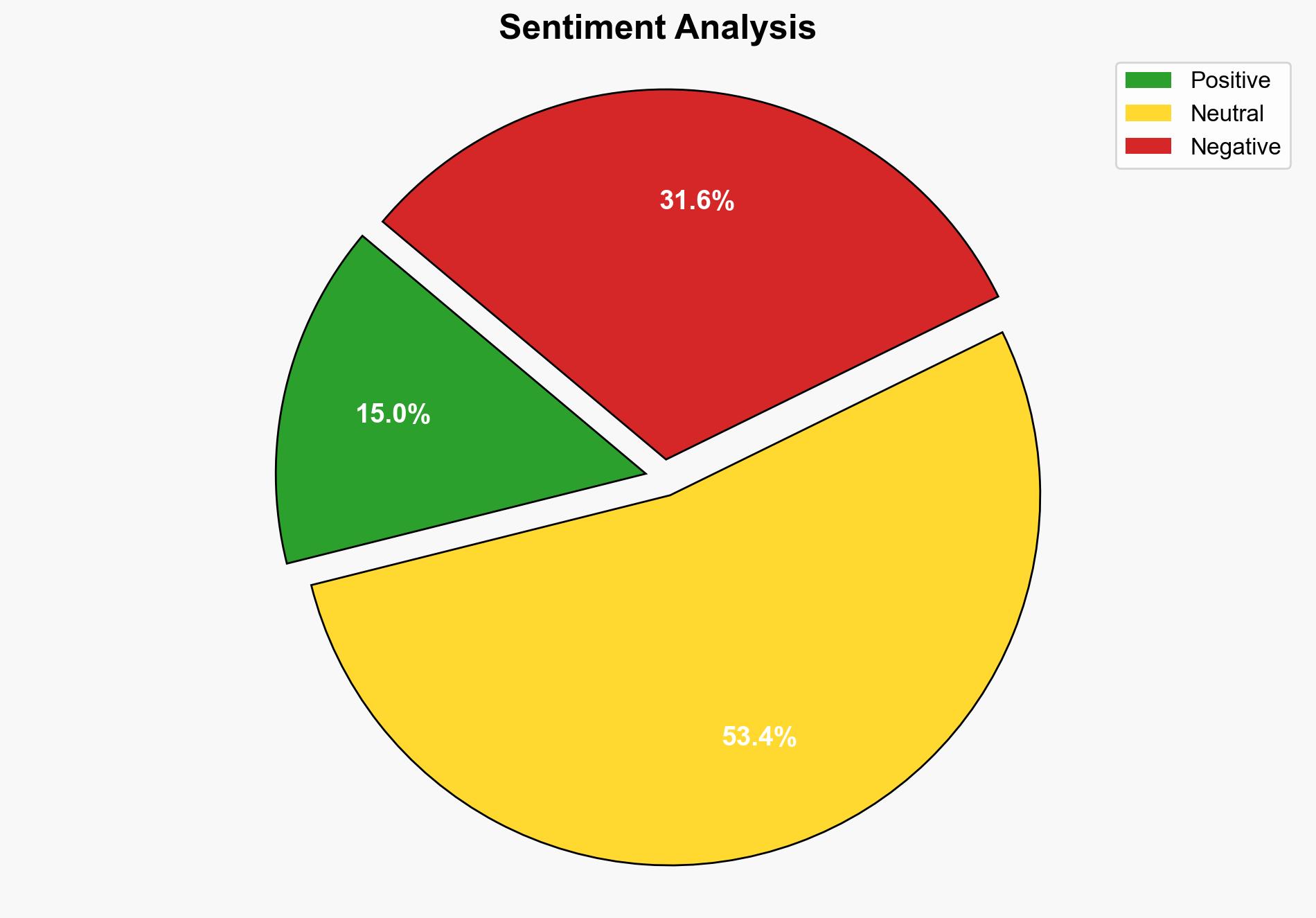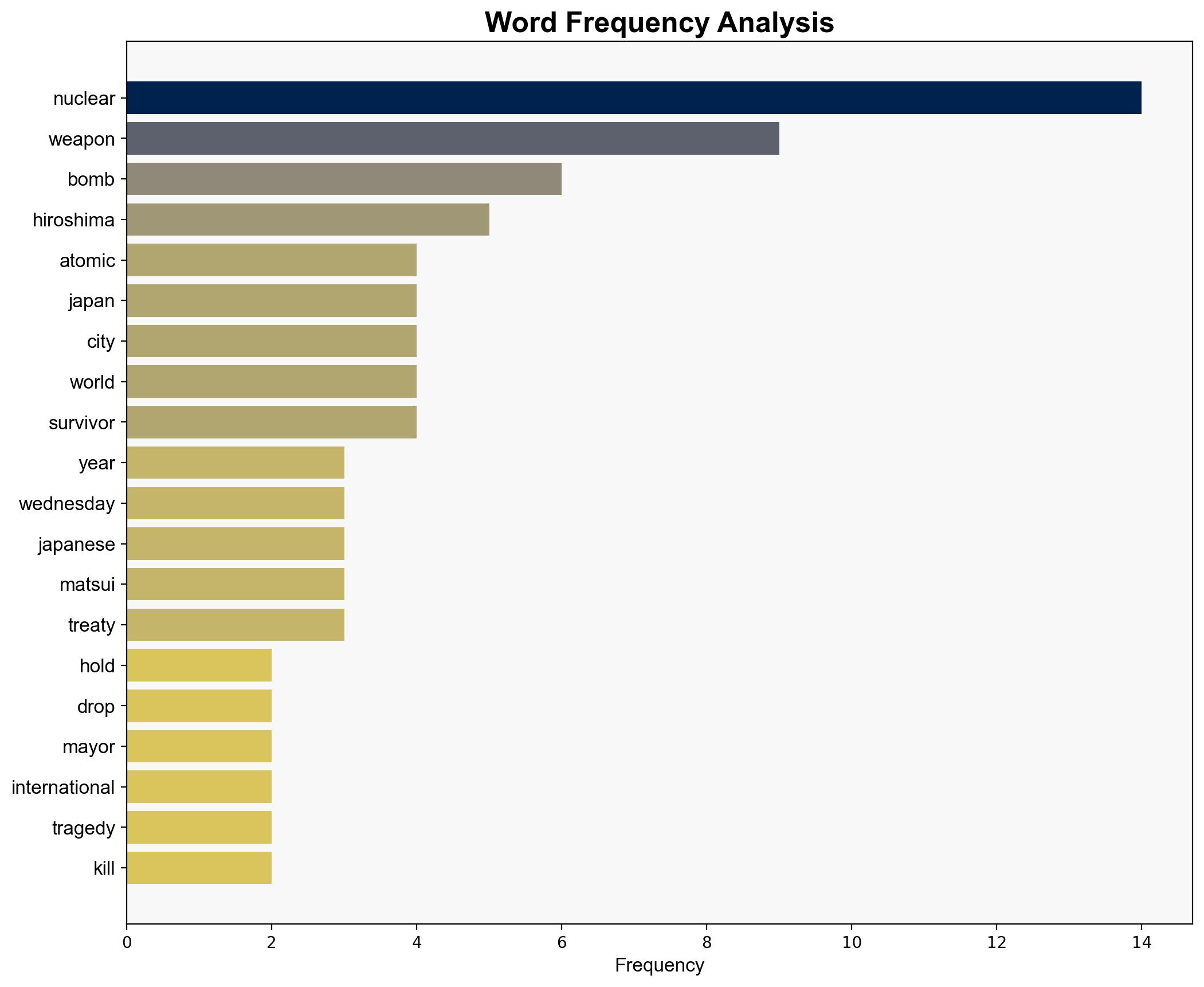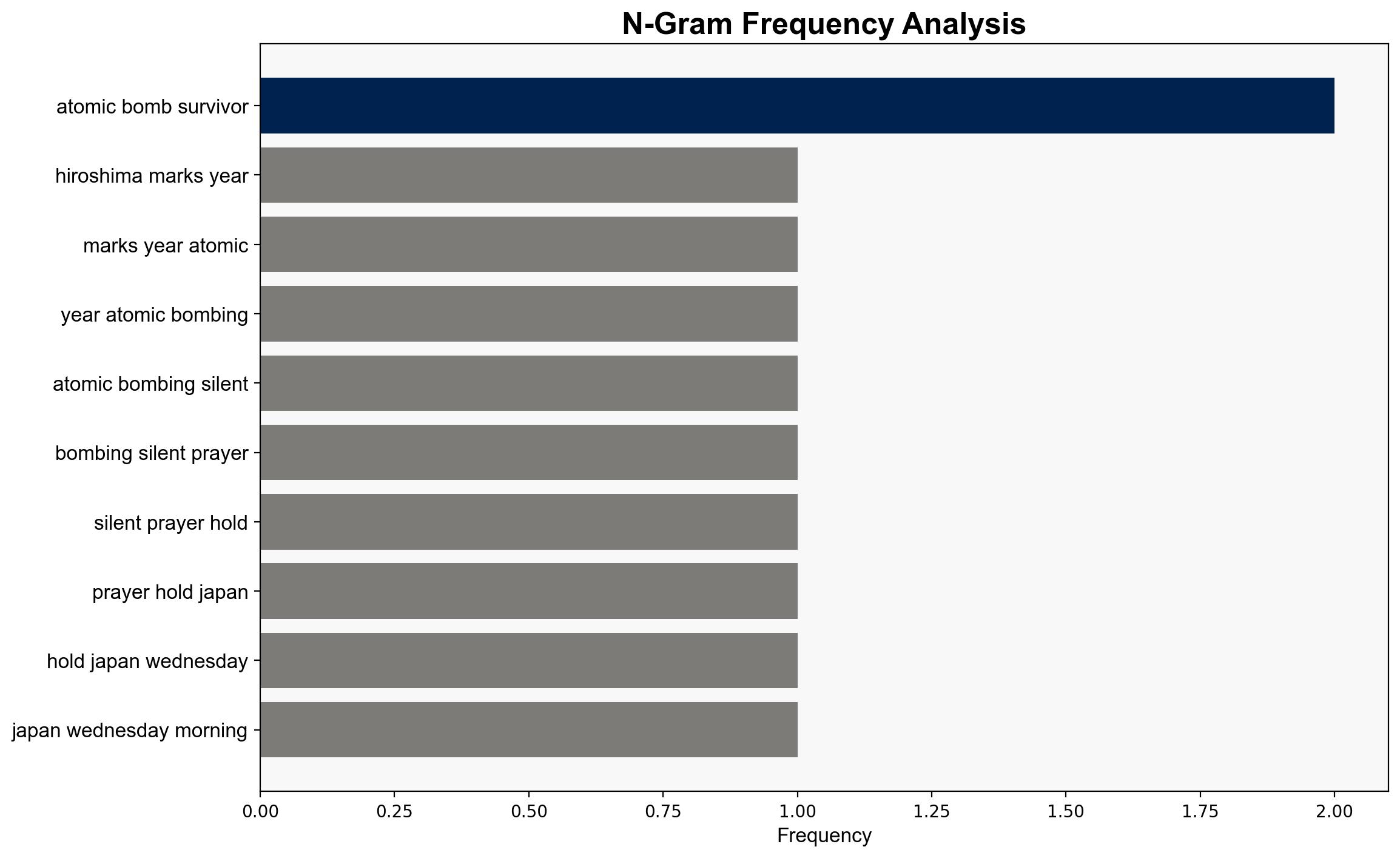Hiroshima marks 80 years since atomic bombing – BBC News
Published on: 2025-08-06
Intelligence Report: Hiroshima marks 80 years since atomic bombing – BBC News
1. BLUF (Bottom Line Up Front)
The most supported hypothesis is that Japan’s commemoration of the Hiroshima bombing serves as a platform to advocate for nuclear disarmament, despite internal and external resistance. Confidence level: Moderate. Recommended action: Encourage diplomatic engagement and dialogue on nuclear non-proliferation, particularly involving nuclear-armed states and those opposing the Treaty on the Prohibition of Nuclear Weapons.
2. Competing Hypotheses
1. **Hypothesis A**: The commemoration of Hiroshima’s atomic bombing is primarily a symbolic act aimed at promoting global nuclear disarmament and reinforcing Japan’s pacifist stance.
2. **Hypothesis B**: The event is leveraged by Japan to subtly reinforce its security policy, which includes reliance on the nuclear umbrella provided by allies, while publicly advocating for disarmament.
Using ACH 2.0, Hypothesis A is better supported by the emphasis on speeches advocating for nuclear disarmament and the presence of groups like Nihon Hidankyo. However, Hypothesis B is plausible given Japan’s rejection of the nuclear ban treaty, citing security concerns.
3. Key Assumptions and Red Flags
– **Assumptions**: Hypothesis A assumes Japan’s primary motivation is disarmament without ulterior security motives. Hypothesis B assumes Japan’s public disarmament stance is primarily strategic, not ideological.
– **Red Flags**: The contradiction between Japan’s public disarmament advocacy and its rejection of the nuclear ban treaty. Potential bias in interpreting Japan’s actions as purely symbolic without strategic considerations.
4. Implications and Strategic Risks
– **Geopolitical Risks**: Japan’s stance may strain relations with nuclear-armed allies and complicate regional security dynamics, especially with countries like North Korea and China.
– **Escalation Scenarios**: Increased tensions could arise if Japan’s actions are perceived as contradictory, leading to regional arms races or diplomatic friction.
– **Psychological Impact**: The commemoration could reinforce public sentiment against nuclear weapons, influencing domestic and international policy debates.
5. Recommendations and Outlook
- Encourage Japan to clarify its position on nuclear disarmament and security policy to reduce ambiguity and potential misinterpretation.
- Facilitate multilateral dialogues involving nuclear and non-nuclear states to address security concerns and promote disarmament.
- Scenario Projections:
- Best Case: Japan’s advocacy leads to renewed global disarmament efforts and strengthened international treaties.
- Worst Case: Misinterpretations of Japan’s stance lead to regional tensions and an arms race.
- Most Likely: Japan continues to balance its disarmament advocacy with security needs, maintaining current alliances.
6. Key Individuals and Entities
– Shigeru Ishiba
– Kazumi Matsui
– Shingo Naito
– Satoshi Tanaka
– Nihon Hidankyo
7. Thematic Tags
national security threats, nuclear disarmament, geopolitical strategy, regional stability




